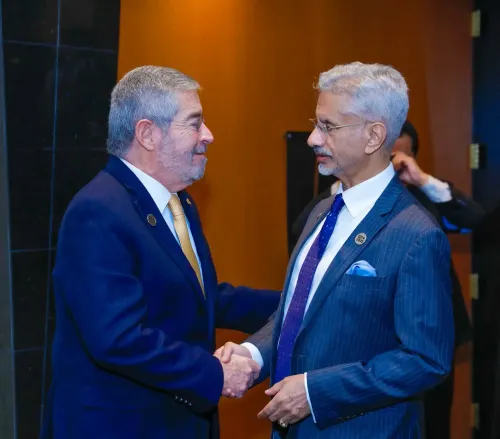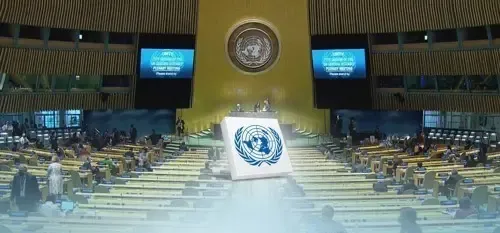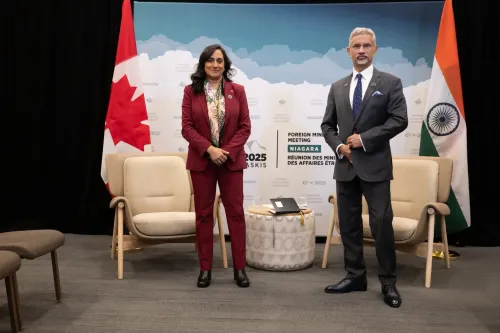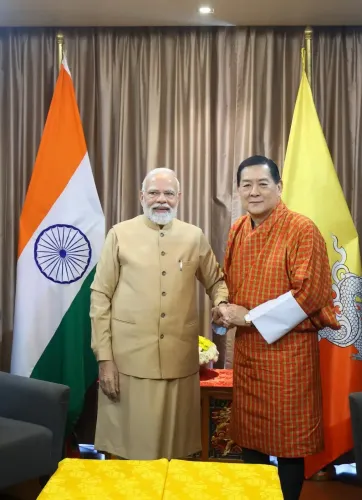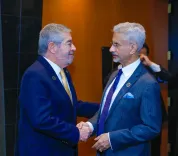What Did the Taliban Blame for Failed Talks with Pakistan?

Synopsis
Key Takeaways
- Taliban blames Pakistan's demands for failed talks.
- Accusations of irresponsibility on both sides.
- Willingness to engage in dialogue remains.
- Concerns about cross-border violence persist.
- Need for mutual respect in future negotiations.
Kabul, Nov 11 (NationPress) Taliban Deputy Foreign Minister Mohammad Naeem has attributed the unsuccessful negotiations between the two nations to Pakistan's unrealistic demands and a lack of coordination, according to local media reports on Tuesday.
Naeem indicated that no progress was made in the discussions due to the Pakistani side's irresponsible and uncooperative behavior, despite what he referred to as the Taliban’s goodwill and the mediation efforts, as reported by Afghanistan's prominent news agency, Khaama Press.
He pointed out that certain elements within Pakistan's military were not inclined to resolve issues through dialogue, adding that it was unjustified to blame the Taliban for all security challenges faced by Pakistan.
Naeem reiterated the Taliban's willingness to resume diplomatic discussions with Pakistan when Islamabad demonstrates goodwill and presents reasonable demands.
His comments came in the wake of accusations from Pakistani official Tahir Hussain Andrabi, who claimed that the Taliban were using negotiations to launch baseless allegations against Islamabad instead of addressing terrorism concerns.
The breakdown of talks between the delegations of Pakistan and Afghanistan has heightened tensions, with both nations accusing each other of cross-border violence and militant actions. The third round of discussions held in Istanbul concluded without any resolutions.
On Monday, Afghanistan’s Foreign Minister Amir Khan Muttaqi stated that the unreasonable demands of the Pakistani delegation were the primary cause for the failure of the negotiations, as reported by Tolo News.
During a graduation ceremony at the Foreign Ministry’s Diplomacy Institute, Muttaqi remarked, “The Pakistani representatives made demands during negotiations that were neither practical nor reasonable. One of their requests was: 'Provide us a guarantee that security incidents in Pakistan will cease.'
He reaffirmed Afghanistan's commitment to fostering friendly relations with Pakistan based on mutual respect, but cautioned that Afghanistan would vigorously defend its territorial integrity if any parties attempted to implement projects against its sovereignty.
“Our intent is to bring goodwill to them. A Muslim should assist another Muslim. However, if certain factions pursue projects that threaten us, Afghanistan has the right to defend itself, and it will,” he stated.
Muttaqi acknowledged that Pakistan's issues are longstanding but criticized its attempts to link them with Afghanistan, saying, “Pakistan’s challenges are not new. Are you not aware that the TTP has been active in Pakistan for the last 25 years? Didn’t the Pakistani government itself report that 70,000 to 80,000 of their citizens were killed during two decades of conflict?”

